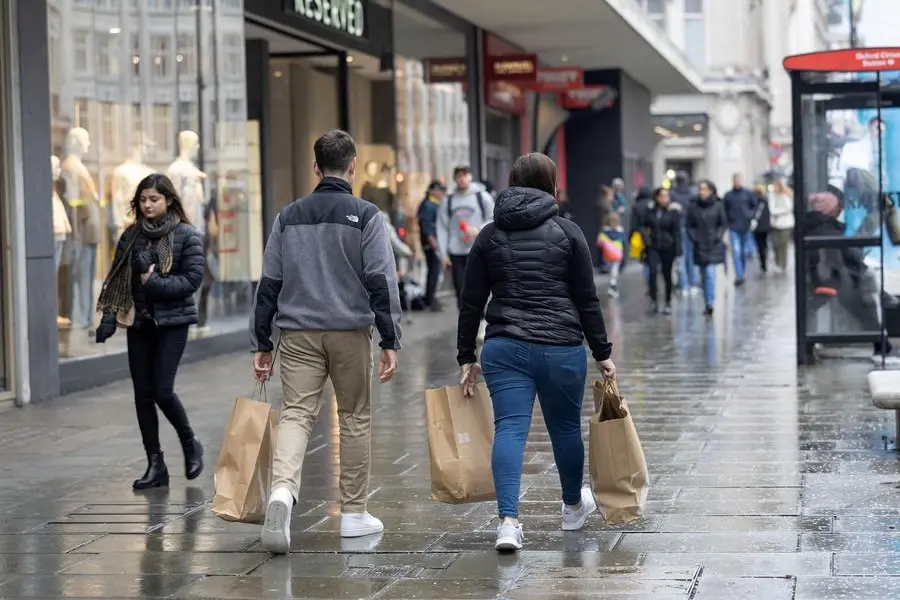PHOTO
Shares in Britain's Marks & Spencer and other retailers fell on Thursday, with 2 billion pounds ($2.45 billion) wiped off the sector, as concern about ebbing consumer confidence and economic weakness overshadowed healthy Christmas trading.
Retailers, already facing weak consumer sentiment, are bracing for higher costs from April, when employer taxes and the minimum wage are set to rise.
The economic outlook has been clouded by a leap in Britain's government borrowing costs in recent days that adds to pressure on government finances and has prompted analyst warnings that further tax rises could be needed.
With inflation also forecast to tick up, retailers anticipate a tough year.
"There is that cautious customer confidence out there," M&S Chief Executive Stuart Machin told reporters, after announcing the group had delivered the highest food sales over the lucrative Christmas period on the UK high street.
M&S reported above-expectations growth of 8.9% in food sales and 1.9% in clothing, home and beauty sales, but the retailer's shares fell 6.5%. Tesco, the country's biggest supermarket group, posted a 4.1% rise in sales, while its shares traded down 1.3%.
"The year ahead won't be all smooth sailing for the retail giants, as the sector gears up to battle imminent tax hikes," Hargreaves Lansdown equity analyst Matt Britzman said.
While those two retailers were helped by booming grocery sales, other categories struggled.
Growth at food-on-the-go specialist Greggs slowed in the final months of 2024 and discounter B&M posted a fall in underlying sales of 2.8%, sending the stocks down by 10% and 12% respectively.
While retailers fell, Britain's globally focused blue-chip index traded higher at 0.5%.
CHALLENGES CONTINUE
Greggs Chief Executive Roisin Currie said consumers were cautious about spending.
"It's been a challenging second half in 2024. I think you have to make some assumptions that that continues in 2025," she told Reuters.
Greggs had performed well in recent years as its value sausage rolls and steak bakes gained popularity, but its underlying sales growth fell to 2.5% in the final quarter of 2024, down from 5% in the previous period.
Next, the UK's biggest clothing retailer by market capitalisation, on Tuesday warned sales growth would slow in its 2025/26 year as the impact of the government's tax hike begins to hit employment levels and raise prices.
Ken Murphy, the boss of Tesco, was more sanguine.
Although consumers who "really celebrated over Christmas" would be more value-focused in January, that was always the case at the beginning of the year, he said.
After the pandemic, a supply chain crisis, and high levels of commodity and energy inflation, Murphy said Tesco, which is forecasting 250 million pounds of additional costs from the employer tax hikes, was used to handling rising costs. ($1 = 0.8132 pounds) (Writing by Sarah Young; editing by Barbara Lewis)





















